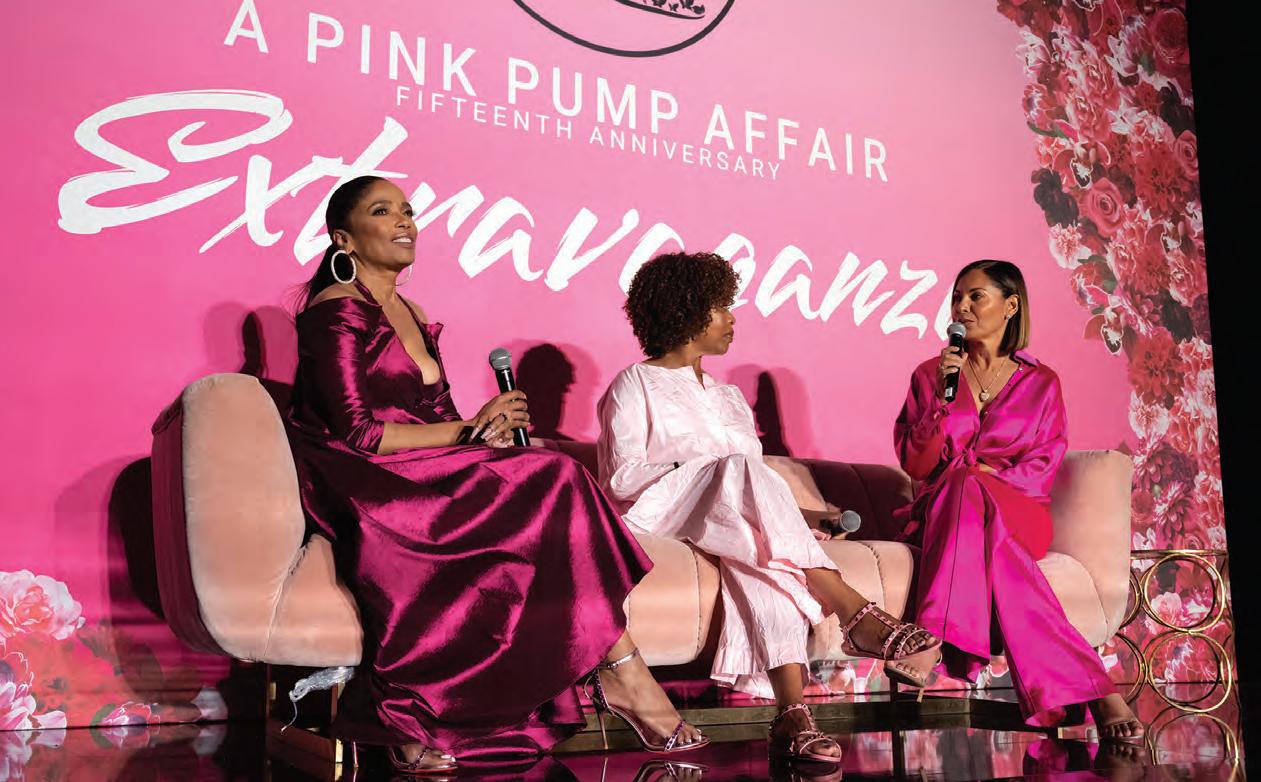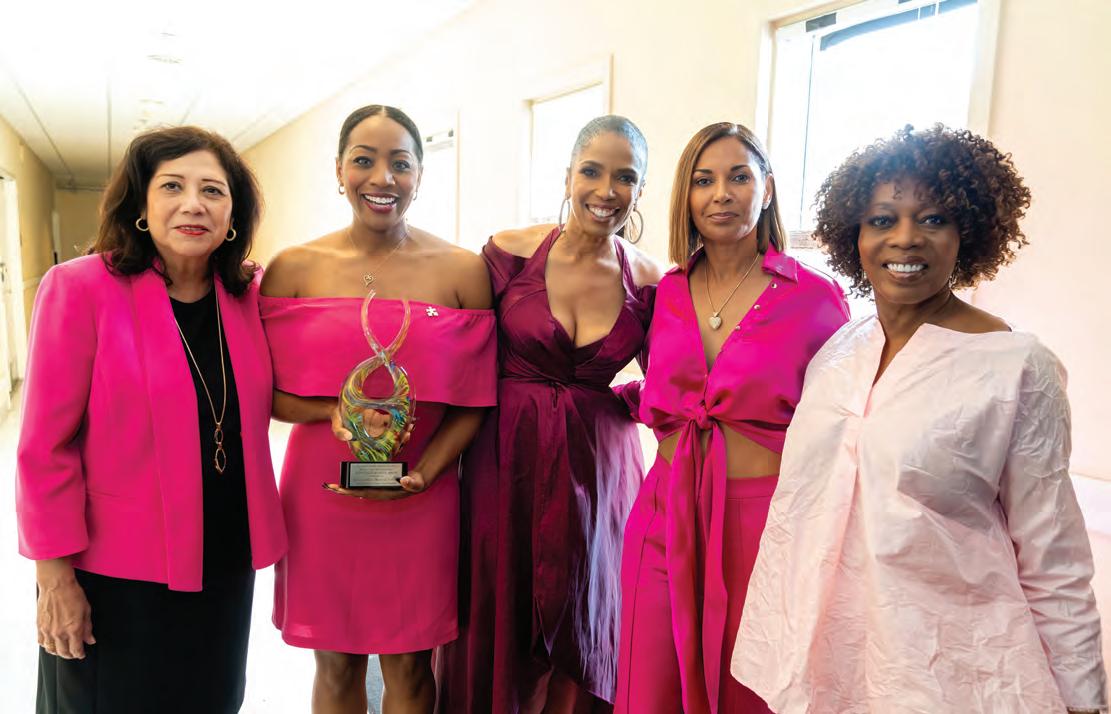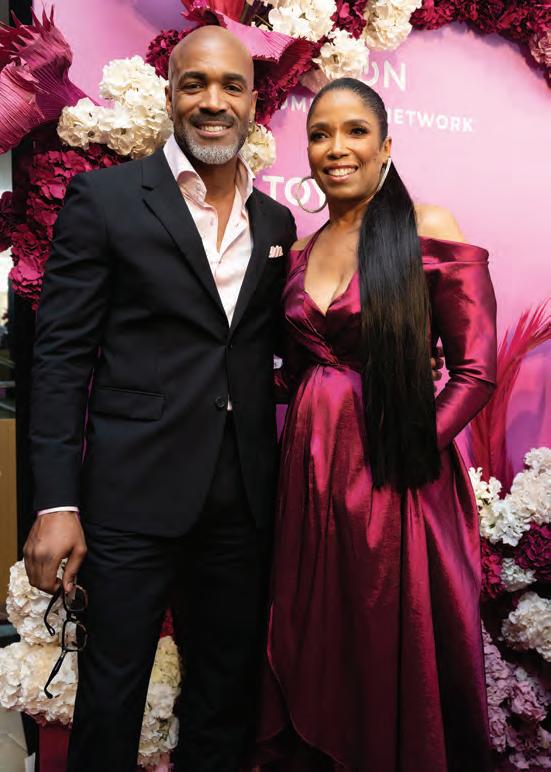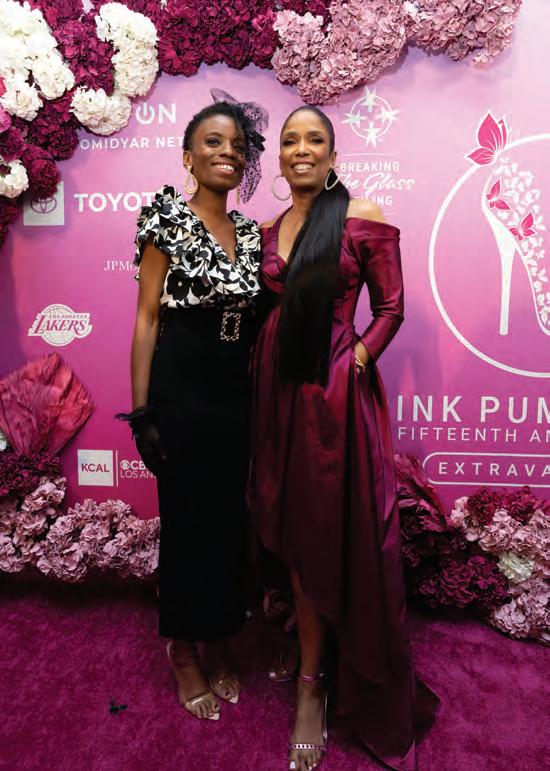
3 minute read
AREVA MARTINPINK PUMP AFFAIR
HOW DID YOU START THE “PINK PUMP AFFAIR” AND WHY?
It all started when my son, Marty, was diagnosed with autism. As a mother, I needed answers. I needed resources. I needed support. The lack of support and resources available to families like mine was staggering. That’s why I founded the Special Needs Network - to provide the support and resources that were missing. And shortly after that, a Pink Pump Affair took root as a way to celebrate women and to support the work of Special Needs Network.
Advertisement
HOW DOES IT FEEL TO CELEBRATE FIFTEEN YEARS OF THE PINK PUMP AFFAIR? It feel good. It feels really really good. We’ve had our share of ups and downs, but the most important thing is that we’ve survived and thrived. We made a commitment 15 years ago to never leave one family or child behind.
WHAT ARE SOME OF THE HIGHLIGHTS OVER THIS PAST AND ICONIC FIFTEEN YEARS? Over the last 15 years, we have recognized the accomplishments of incredible women such as Vice President Kamala Harris and many others who have worked tirelessly to improve the lives of children and families. From elected leaders to actresses to corporate CEOs, all of them are exceptional women of distinction. We take great pride in knowing that some of the women spearheading the fight for justice and equality for our children and families are also part of our Pink Pump family.
WHAT HAS BEEN YOUR BEST MEMORY FROM PPA?
I have many fond memories, but here are a couple that stick out:
1. One year we decided to honor our first and only man ——award winning producer, Jason Katims. He has produced a very popular series that featured individuals on the autism spectrum and I had an opportunity to meet and get to know him and his wife. I was so inspired by how he was using his platform as a producer and showrunner to raise awareness of autism, that we made an exception to our women of distinction honorees to honor him. He was incredibly gracious. He wore as much pink is, he could muster the courage to don and he told the most inspiring story about his own families, journey with an autistic son, which inspires his work as a television and film producer.
2. Another fun memory is the year one of the very first families who attended camp JPAC—Meshell Baylor was our ambassador family. We had created a video of her in her home, interacted with her for children to a former on the spectrum, and she talked so powerfully about how camp JPEG had changed the lives of her children and her family. We showed the video and then Meshell, and one of her sons took the stage and there wasn’t a dry in the room. In the video she talked about how nervous she was dropping her children off at camp, but this tall lady placed her hands on her shoulders and reassured her that her babies would be safe. That tall woman was me. I had totally forgotten that moment, and had no idea what impact it had on her decision to trust her children with us. These are the types of transformative experiences that keep me going.
WHEN DO YOU START PLANNING FOR THE EVENT?
Next year’s planning starts today!
CAN YOU TELL US ABOUT SOME OF THE PROGRAMS THAT SPECIAL NEEDS NETWORK SUPPORTS?
Special Needs Network created Camp JPAC many years ago which has grown into an inclusive and supportive community where children with special needs can thrive. I’m proud to share that we’re just opening the landmark Autism Wellness Center at the Martin Luther King Jr. Community Hospital campus. The new clinic provides a central location where all programs and services can come together under one roof, enhancing our focus on serving Watts Willowbrook and the South Los Angeles community, a community that needs and deserves first rate access to these resources. The clinic is the realization of our vision to create a comprehensive, state-of-the-art facility that provides the highest quality care to children with special needs and their families.
WHERE DO YOU FIND THE PASSION AND ENERGY TO KEEP DOING EVERYTHING THAT YOU DO?
The need is massive. The rate of autism spectrum disorder (ASD) in children aged 8 years old has increased to 1 in 36. Knowing this coupled with how challenging it was for me as a mother helps motivate and inspire me to strive for deeper advocacy daily.












